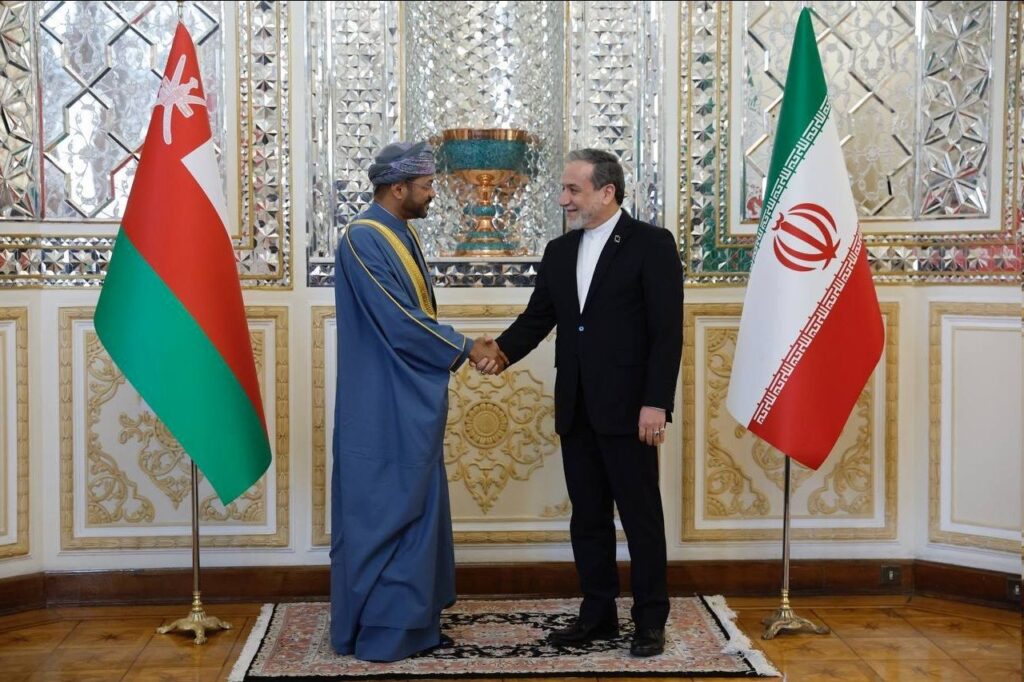In the intricate web of Middle Eastern diplomacy, Oman has consistently played a pivotal yet understated role as a facilitator between adversarial nations, notably Iran and the United States. As tensions escalate in the region, Oman’s discreet diplomacy becomes ever more crucial in preventing conflicts and fostering dialogue.
A Tradition of Neutral Facilitation
Oman’s unique geopolitical stance allows it to act as a neutral facilitator. Unlike some of its Gulf neighbors, Oman maintains amicable relations with Iran, rooted in historical ties dating back to the 1970s when Iran assisted Oman during the Dhofar Rebellion. This history of mutual respect has enabled Oman to serve as a trusted intermediary.

Unlike Qatar, which often engages in high-profile mediation, Oman prefers a low-key approach, focusing on creating spaces for dialogue rather than direct intervention. This method involves passing messages, maintaining indirect communication channels, and hosting discreet meetings, all aimed at reducing potential conflicts in its immediate neighborhood.
Historical Successes in Diplomacy
Oman’s facilitation has been instrumental in several critical diplomatic engagements:
- Iran Nuclear Deal (2015): In 2013, Oman hosted secret talks between U.S. and Iranian officials, laying the groundwork for the Joint Comprehensive Plan of Action (JCPOA) in 2015. This agreement marked a significant milestone in curbing Iran’s nuclear program in exchange for sanctions relief.
- U.S.-Iran Communications: Following the U.S. withdrawal from the JCPOA in 2018, Oman continued to serve as a communication conduit, helping to de-escalate tensions, especially after incidents like the U.S. killing of Iranian General Qassem Soleimani in 2020.
Recent Developments Amid Escalating Tensions
The Middle East has witnessed a surge in hostilities, particularly following the October 7 attack by Hamas and subsequent Israeli military responses. These events have heightened the risk of a broader regional conflict, underscoring the need for effective communication channels.

In this volatile context, Oman has intensified its diplomatic efforts:
- Facilitating U.S.-Iran Dialogue: In January 2024, Oman hosted delegations from both the U.S. and Iran, shuttling between representatives in separate rooms to facilitate indirect negotiations. This approach helped both sides express concerns and explore potential de-escalation strategies without direct confrontation.
- Responding to Regional Attacks: After the bombing of an Iranian embassy compound in Damascus on April 1, Oman played a crucial role in mediating responses. Iranian Foreign Minister Hossein Amirabdollahian’s visit to Oman on April 7 allowed Omani officials to debrief U.S. and Western counterparts on Iran’s perspective, aiding in the formulation of measured responses.
Oman’s Broader Diplomatic Engagements
Beyond the U.S.-Iran dynamic, Oman has been active in addressing other regional conflicts:
- Yemen Conflict: Oman has maintained communication with Houthi rebels, advocating for peaceful resolutions and humanitarian access. Despite U.S. military pressure and appeals from Iran, the Houthis have continued their attacks, complicating peace efforts.
- Israeli-Palestinian Tensions: Omani Foreign Minister Badr Albusaidi has called on Western powers to exert more pressure on Israel to end military offensives against Hamas and Hezbollah, emphasizing the moral obligation to address the humanitarian crises resulting from these conflicts.
The Importance of Back-Channel Diplomacy
Oman’s role as a back-channel facilitator is vital in the current geopolitical climate:
- Preventing Miscalculations: With the absence of official bilateral channels between adversarial nations, Oman’s facilitation helps prevent misunderstandings that could lead to unintended escalations.
- Building Trust: By providing a reliable communication platform, Oman helps build incremental trust between conflicting parties, which is essential for any long-term resolution.
- Encouraging Peaceful Resolutions: Oman’s consistent advocacy for dialogue over confrontation aligns with its broader foreign policy of promoting regional stability through peaceful means.
Challenges and Future Prospects
While Oman’s diplomatic efforts have been commendable, several challenges persist:
- Regional Polarization: The deep-seated rivalries and sectarian divides in the Middle East make mediation efforts complex and often slow-moving.
- External Pressures: Global powers’ involvement in regional conflicts can both aid and hinder Oman’s facilitation efforts, depending on their strategic interests.
- Domestic Constraints: Oman’s capacity to influence outcomes is limited by its size and resources, necessitating collaboration with other neutral parties like Switzerland and Kuwait.
Despite these challenges, Oman’s commitment to back-channel diplomacy remains a cornerstone of its foreign policy. As tensions continue to flare in the Middle East, the international community recognizes and values Oman’s unique position as a bridge-builder, fostering dialogue in a region fraught with conflict.
In conclusion, Oman’s discreet yet effective diplomacy underscores the significance of neutral facilitators in international relations. By maintaining open lines of communication between adversaries, Oman not only enhances its own geopolitical standing but also contributes to the broader goal of regional and global stability.
Deadly Mosque Shooting in Oman: Islamic State Claims Six Lives


